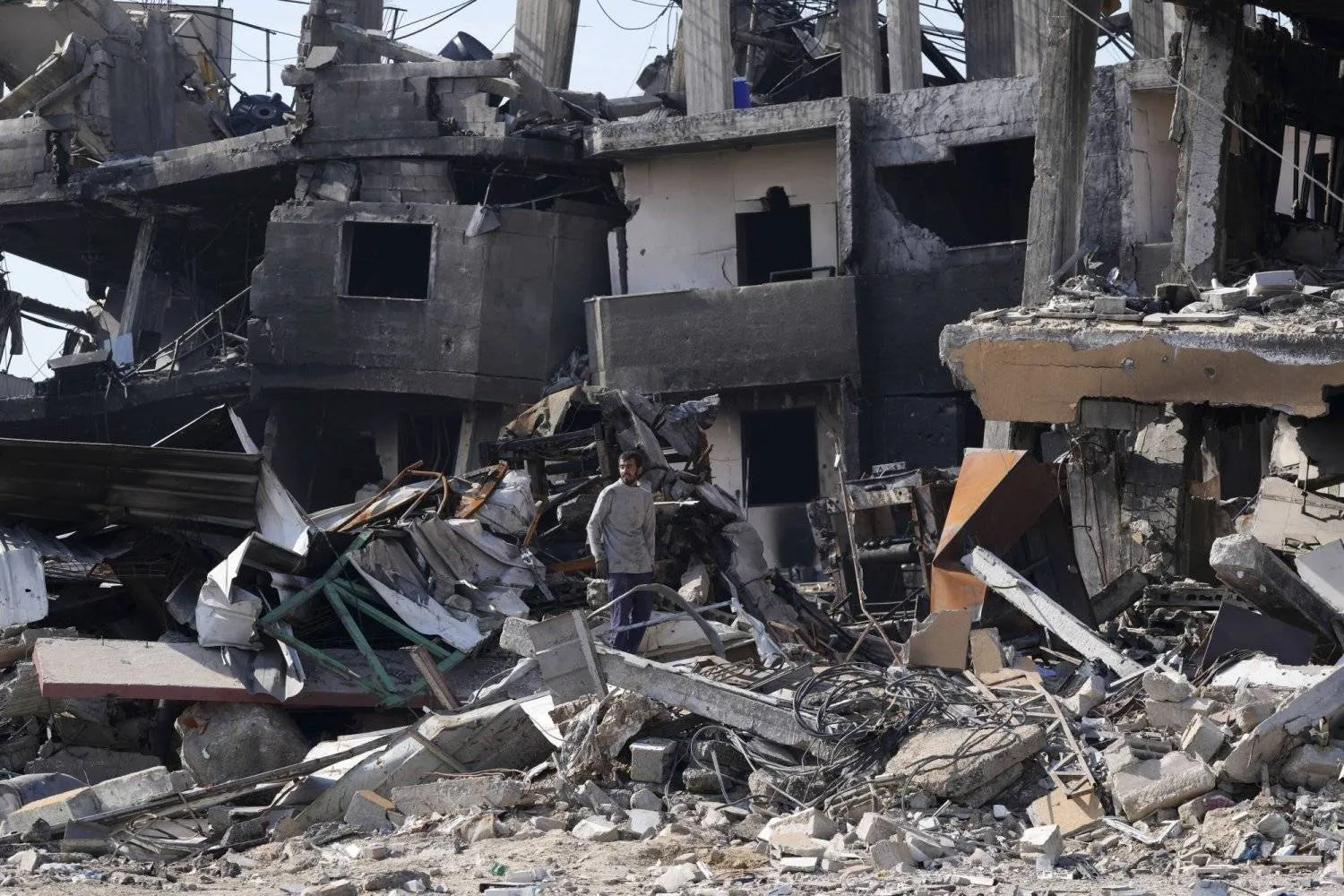Israeli forces carried out arrests in Gaza's largest functioning hospital, health officials and the military said on Saturday, as airstrikes hit across the enclave and rain battered Palestinians taking shelter in Rafah.
Israeli forces raided the Nasser Hospital in Khan Younis on Thursday as they pressed their war on Hamas, the Palestinian Islamist group that rules the enclave.
"Occupation forces detained a large number of medical staff members inside Nasser Medical Complex, which they (Israel) turned into a military base," said Gaza Health Ministry spokesman Ashraf al-Qidra, Reuters reported.
The Israeli military said it was hunting for militants in Nasser and had so far arrested 100 suspects on the premises, killed gunmen near the hospital and found weapons inside it.
Hamas has denied allegations that its fighters use medical facilities for cover. At least two released Israeli hostages have said they were held in Nasser.
The Israeli incursion into the hospital has raised alarm about patients, medical workers and displaced Palestinians sheltering there.
About 10,000 people were seeking shelter at the hospital earlier this week, but many left either in anticipation of the Israeli raid or because of Israeli orders to evacuate, the Gaza Health Ministry said.
Further south in Rafah, where more than half of Gaza's 2.3 million population are sheltering, the winter cold added to already dire conditions when wind blew away some tents of the displaced and rain flooded others.
Israeli plans to storm Rafah have prompted international concern that such action would sharply worsen the humanitarian crisis in Gaza.
Also, Hamas chief Ismail Haniyeh blamed Israel for a lack of progress in achieving a ceasefire deal in Gaza, the group said in a statement on Saturday.
Haniyeh added that Hamas would not accept anything less than a complete cessation of hostilities, Israeli withdrawal from Gaza, and "lifting of the unjust siege," as well as a release of Palestinian prisoners serving long sentences in Israeli jails.
Israeli Prime Minister Benjamin Netanyahu has vowed "complete victory" over Hamas but added on Wednesday that flexibility in the group's position could move forward negotiations for a deal that would see hostages released.
Israel's air and ground offensive has devastated much of Gaza and forced nearly all of its inhabitants from their homes. Palestinian health authorities say 28,858 people, mostly civilians, have been killed.
The war began when Hamas sent fighters into Israel on Oct. 7, killing 1,200 people, mostly civilians, and seizing 253 hostages, according to Israeli tallies.
At least 83 people were killed in airstrikes across the Gaza Strip since Friday, health officials said, including one person on Saturday in Rafah, an area that borders Egypt and which Israel says is Hamas' last bastion.
Across the border, air raid sirens warning of incoming rockets sounded in the southern Israeli city of Ashkelon on Saturday.









